I refuse to accept that localization is a commodity!
The end of the year is almost here, always a time to reflect on what has happened during 2018 ...., but in this post, I do not want to talk about the summary of the year ... I want to look back, as far back as a decade.
That is the time that has passed since the world economic crisis broke out as a result of the Lehman Brothers scandal. Perhaps the G-localization industry was not as abruptly affected as other industries.
Source: CSA
I have friends who work in banking who have been seeing how the number of branches is dwindling, and the staff trimming adjustments seem to have no end; our industry in that sense is different from the banking sector; the localization industry has managed to grow during all these years that the crisis has lasted. .
In a way, this expansion has logic ... if the local market I'm selling to is in crisis, then I'll sell it to another market! And to make that happen we need our friends, the translators ! So if it is true that the crisis has not stopped this industry, there have been factors that are causing the localization industry to take an uncertain path. During the most complicated years of the crisis many translators and LSPs lowered their rates to get ahead; better to charge something than not to charge anything at all! ok, fair enough, that's a thought with a certain logic. We lower prices and when things improve we will increase them ... And that is the problem, once the translation prices are lowered, increasing them later is complicated, especially if during a decade of crisis we witness .... the rise of machine translation. ...
These variables, crisis, reduces price per word and machine translation are having an impact that we don't fully know yet the consequences. Because there are certain sectors or clients that start to see the translation industry as a commodity. And that's dangerous thought, and from my point of view, it's a mistake!
The translation industry is a service, not a commodity!
A commodity for me is, for example, sugar; when I go shopping in the supermarket, I do not know what sugar I want, beyond whether I want brown or white sugar, I take whatever, which is usually the cheapest. A commodity only needs a buyer, a seller, and a price. And the product is the same. But that's the main reason why Localization is not a commodity is because the translation of the a text rarely will be the same. 2 translation projects are always different depending on a wide range of factors (see infographic below) For that reason, I believe that all of us who work in this industry have to make an effort and change the question from: Which are your translation word rates to Which are your translation services?
Word rates have not real value when it comes to assessing the quality of an effective localization program.
It’s true there are “translators hobbyist” that they will work for very low rates, offering a pseudo-machine translation with some sort of post editing. But the reality is that there will be clients always looking for a top-notch quality translation.
A poor translation can ruin your reputation, or it can cause losses in case of legal mistakes or even kill someone in the most extreme cases (read more below about what it might have happened in Mead Johnson Nutritionals)
Source: Keylingo
So, the question is what’s the price of localization, really, what’s the price? And the answer is …. there’s not a single answer … but what I don’t think that we should do is to consider the translation cost as a simple transaction seller-buyer; it’s not a commodity. We cannot go out there and simply say “hey I I need a translation” and then ask the providers what’s the cost per word and grab the cheapest one; that works for the sugar that I bought while I edit some pictures for a Christmas album … but that approach is not the right one in the translation industry, because despite the crisis, despite machine translation, localization is not a commodity, it’s a service.
Having some commodity with a cup of coffee while editing a Christmas photobook 😎
That’s all for now, need to go to do some shopping, I’ll buy some nice red wine to enjoy on this beautiful Sunday, by the way, a good Spanish Red Wine is not a commodity either … but we will leave that for a future post 😁
Click HERE to download the Infographic
Have a great week! and feel free to share your thoughts below?! do you think translation nowadays is a commodity?
@yolocalizo

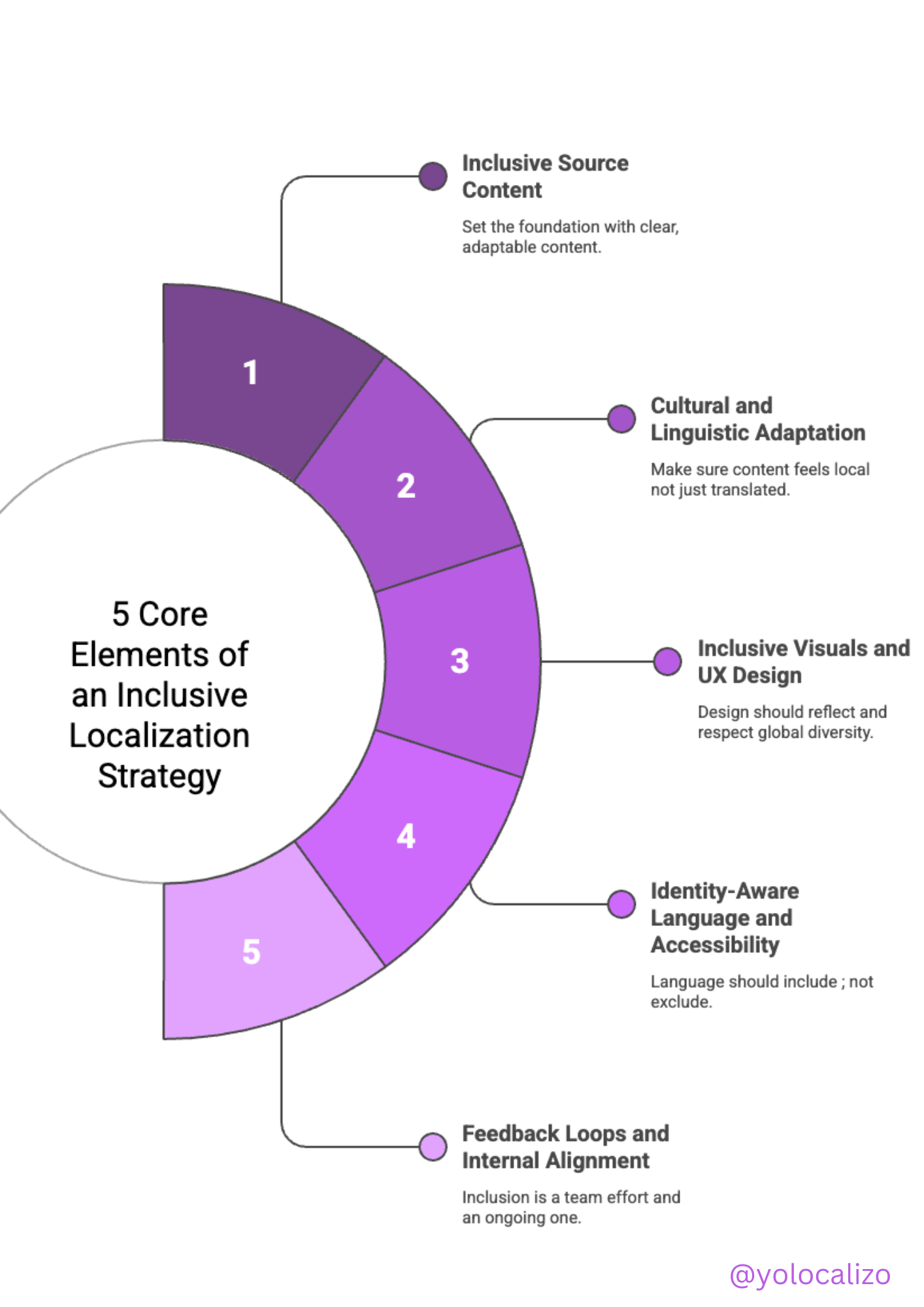

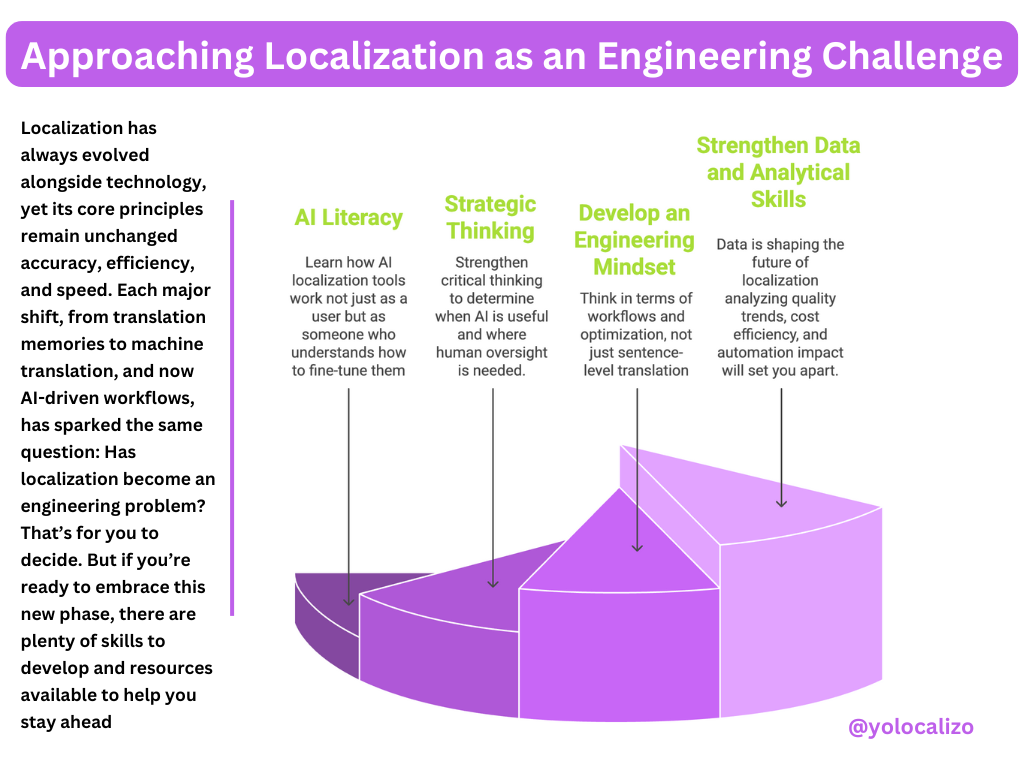
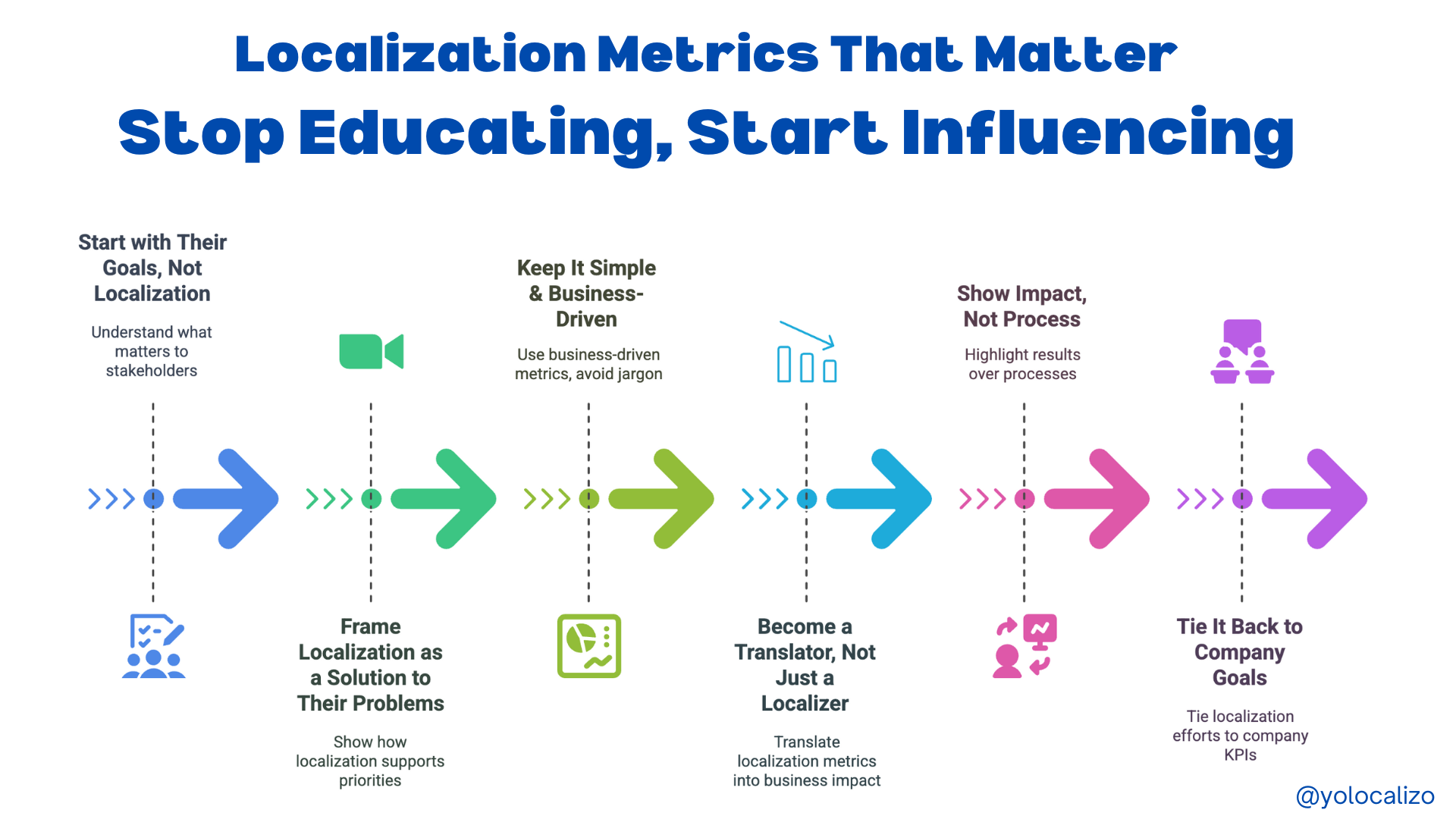


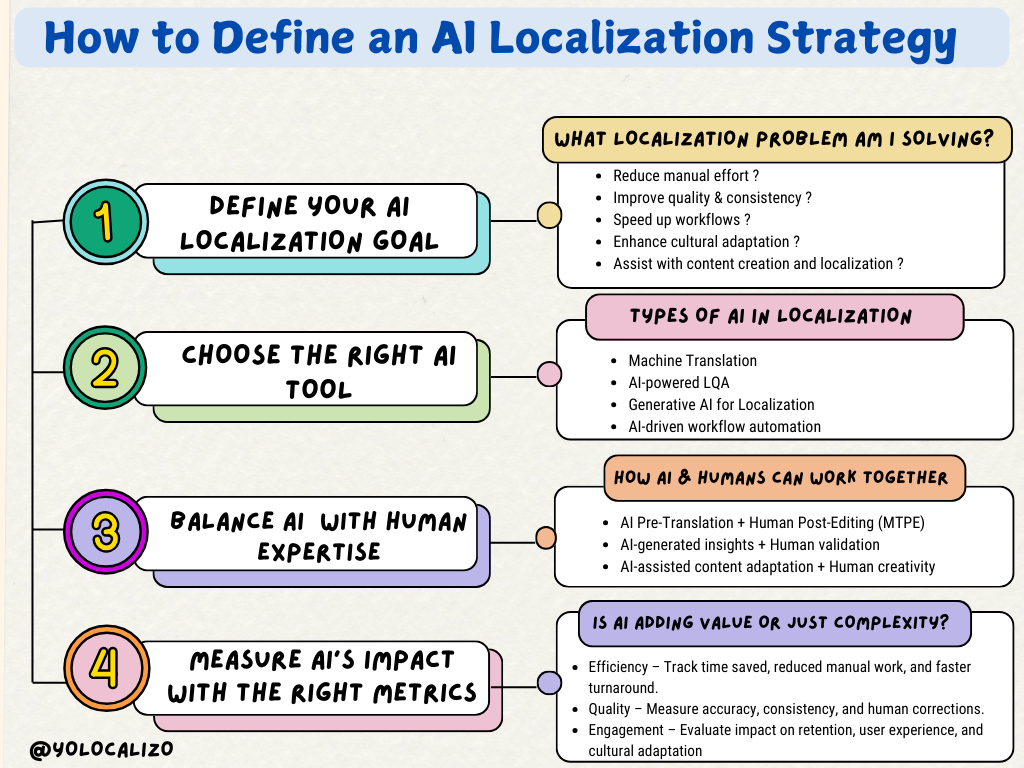






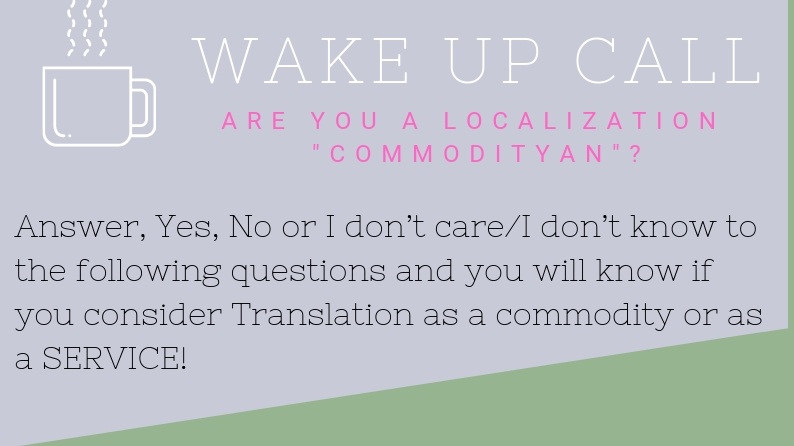


Before jumping on the AI bandwagon: What localization problem are you trying to solve? AI is everywhere right now, including in localization.
But before jumping on the bandwagon, we need to stop and ask:
Are we solving the right problem?